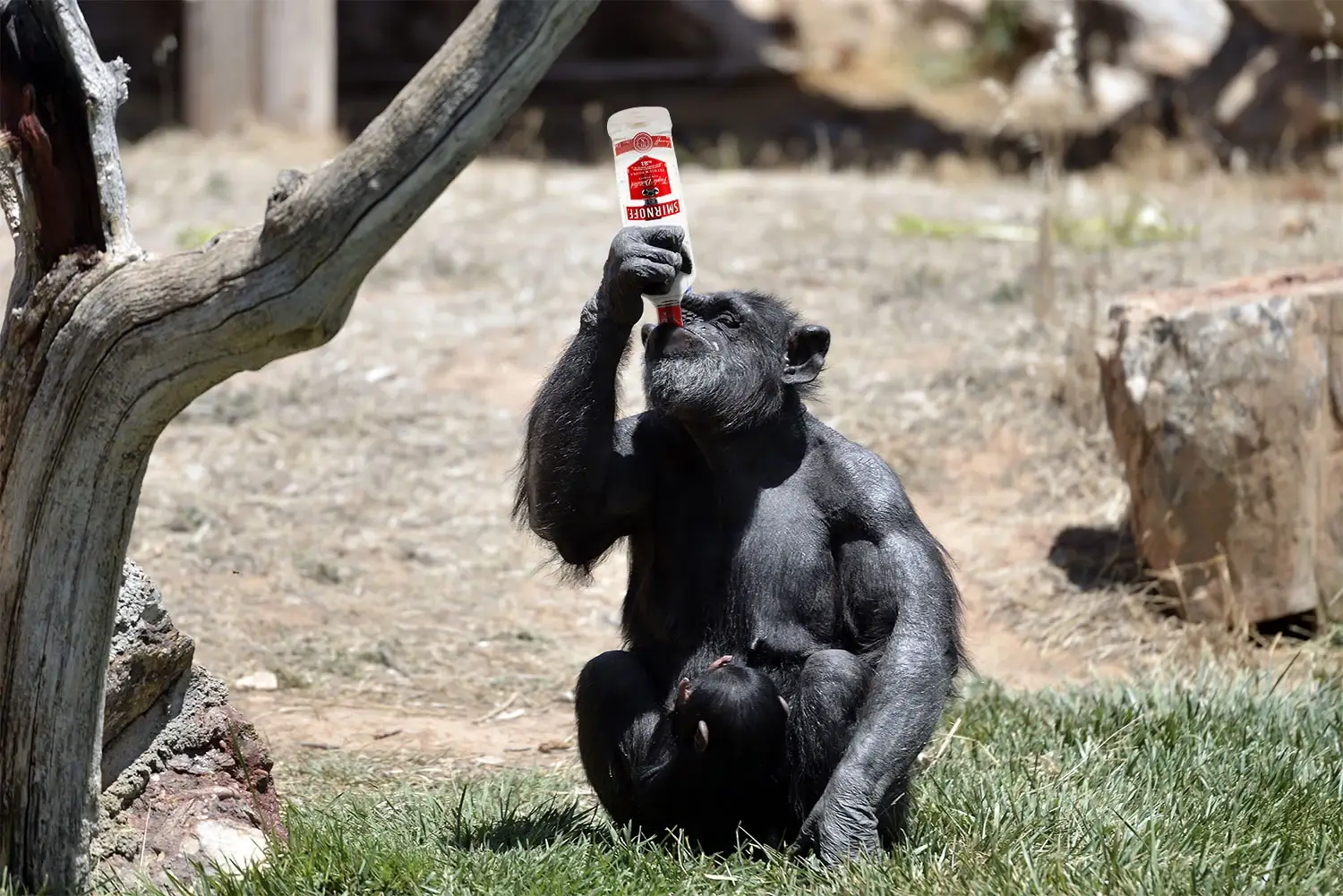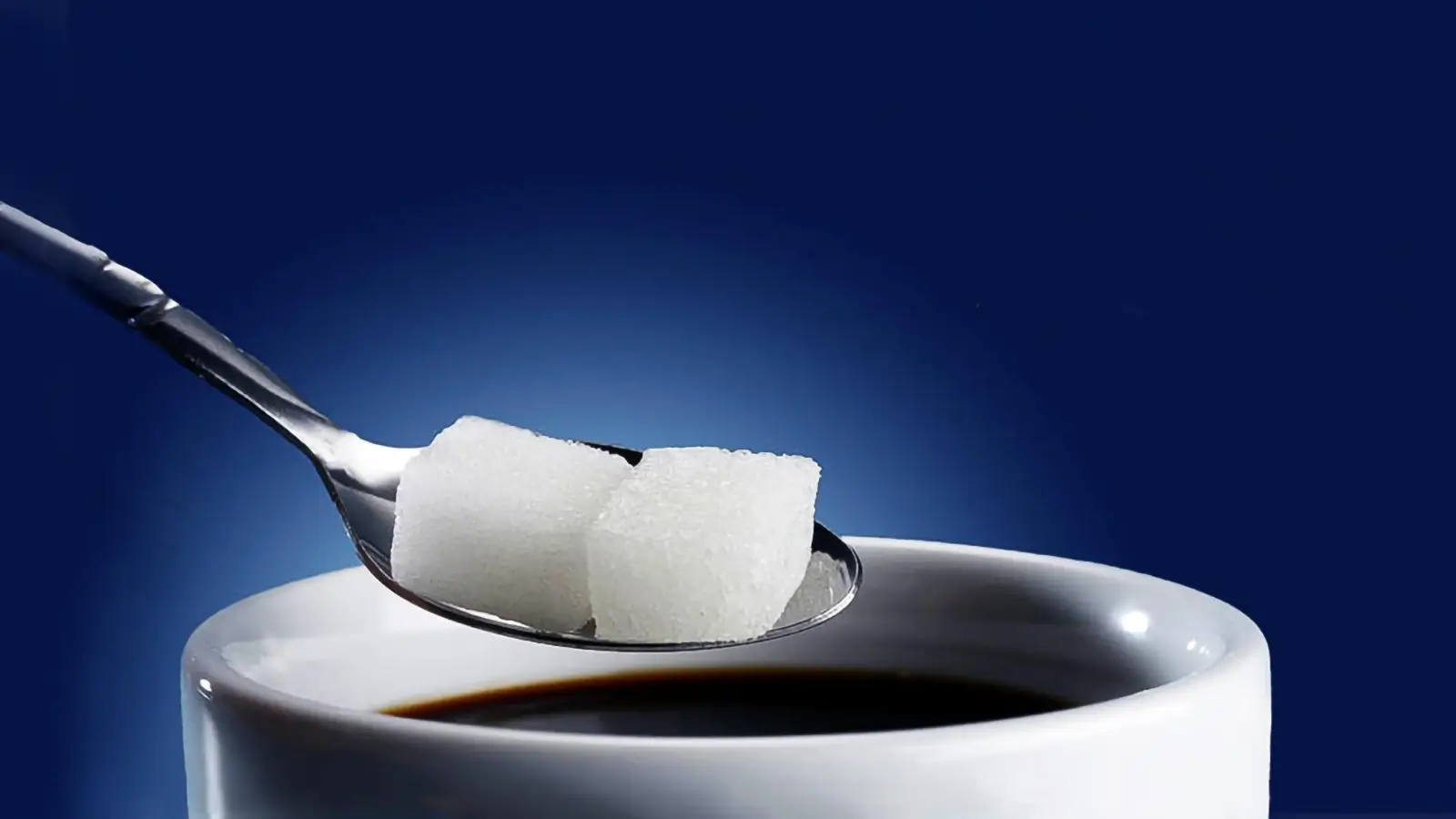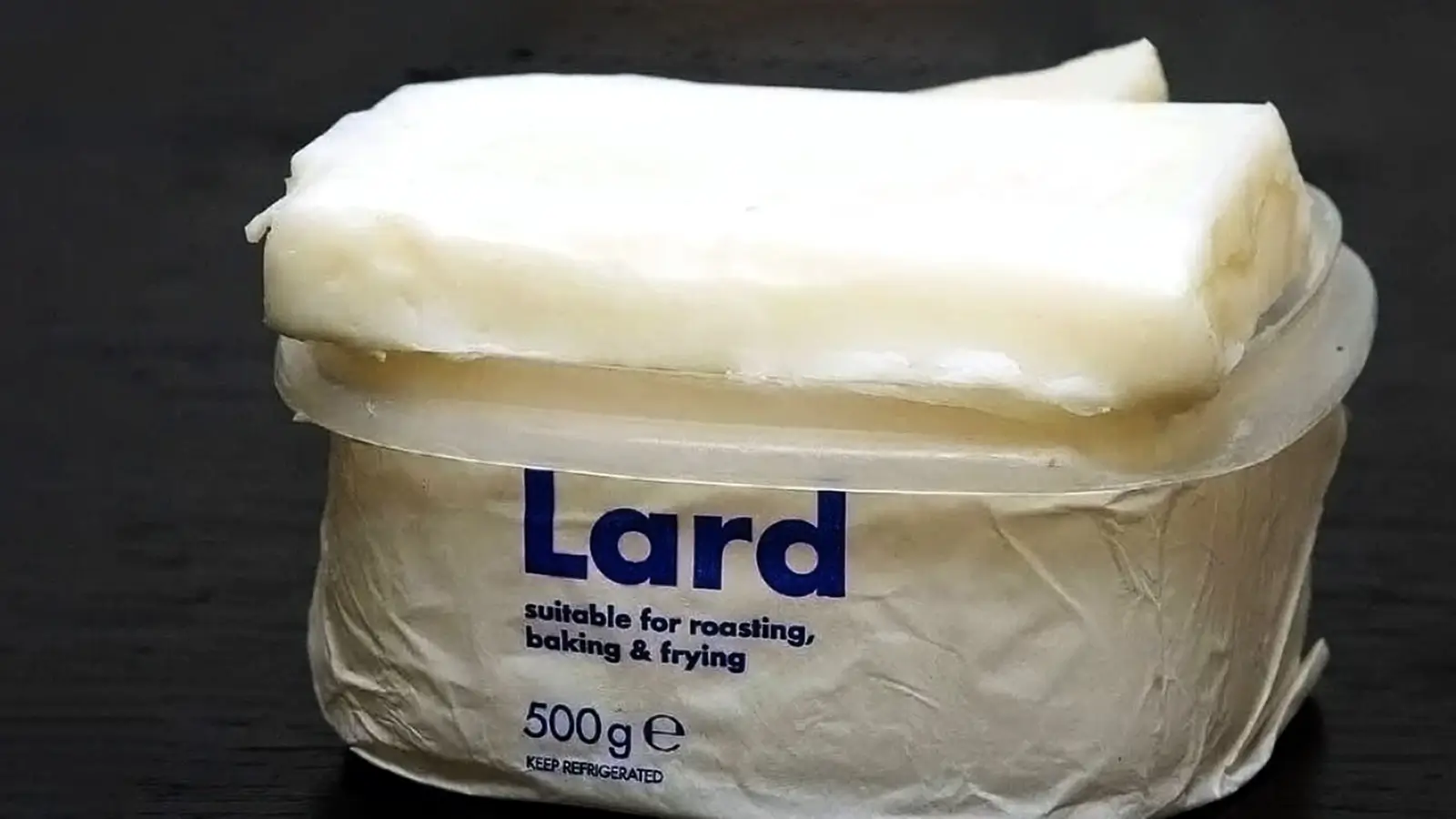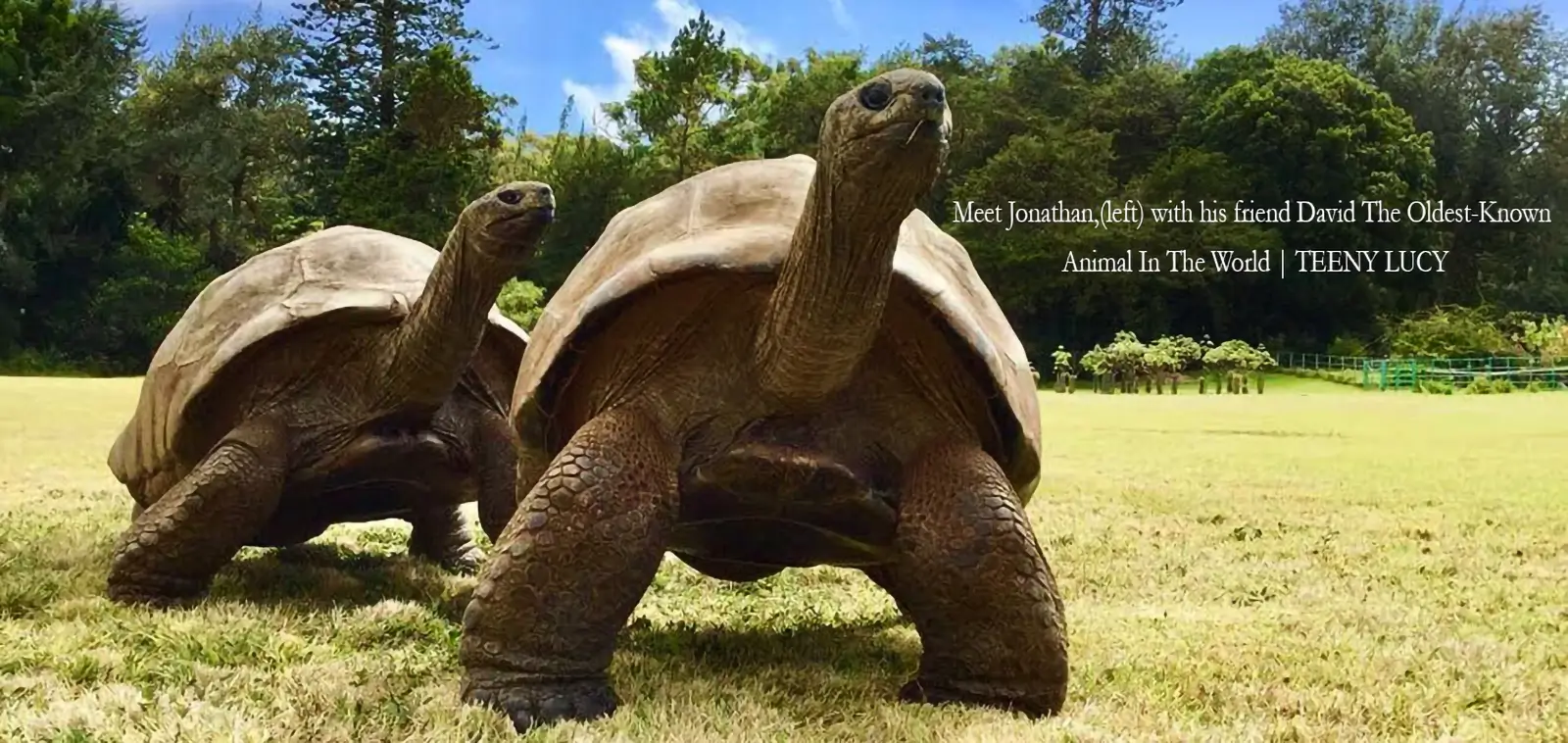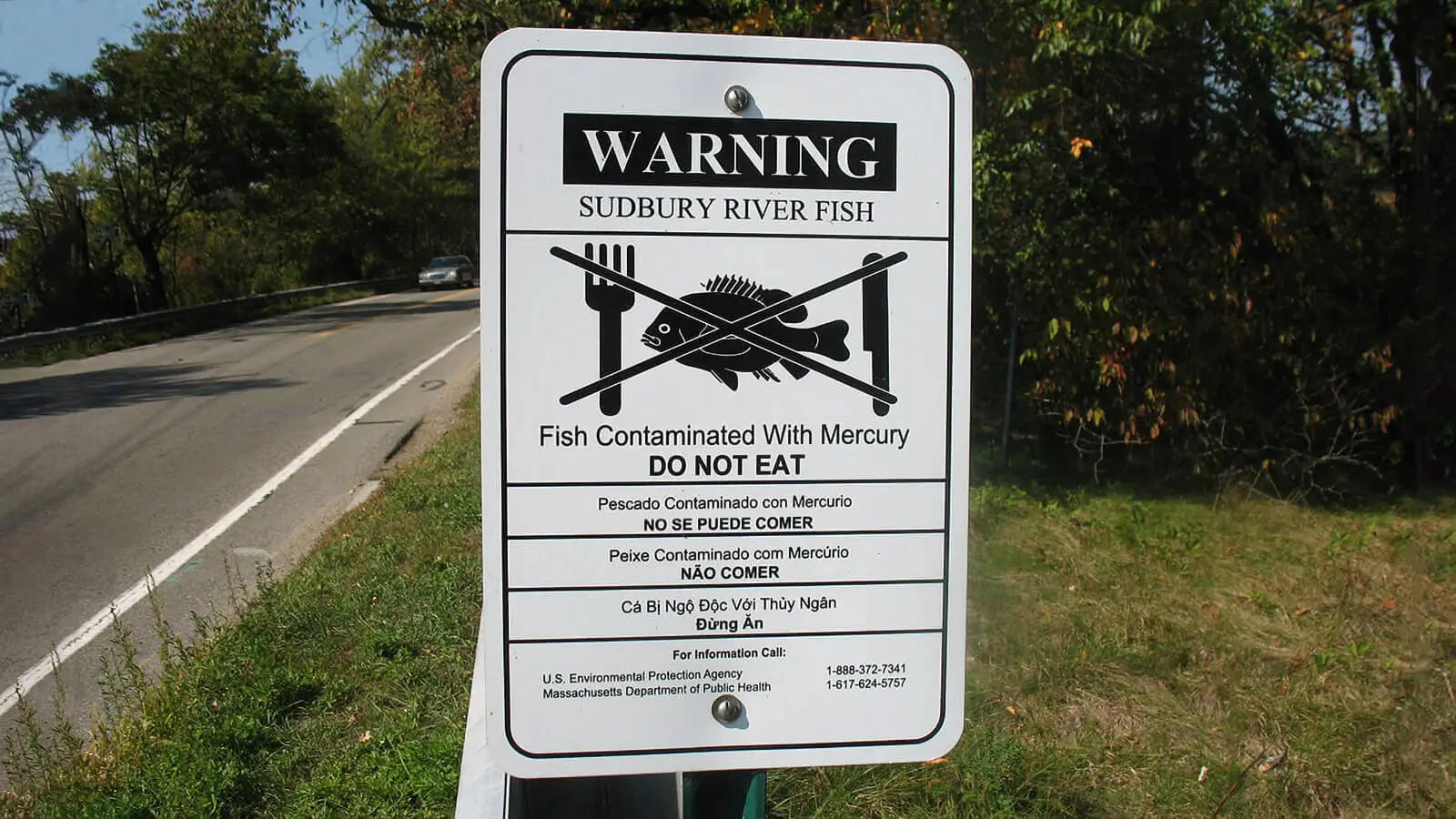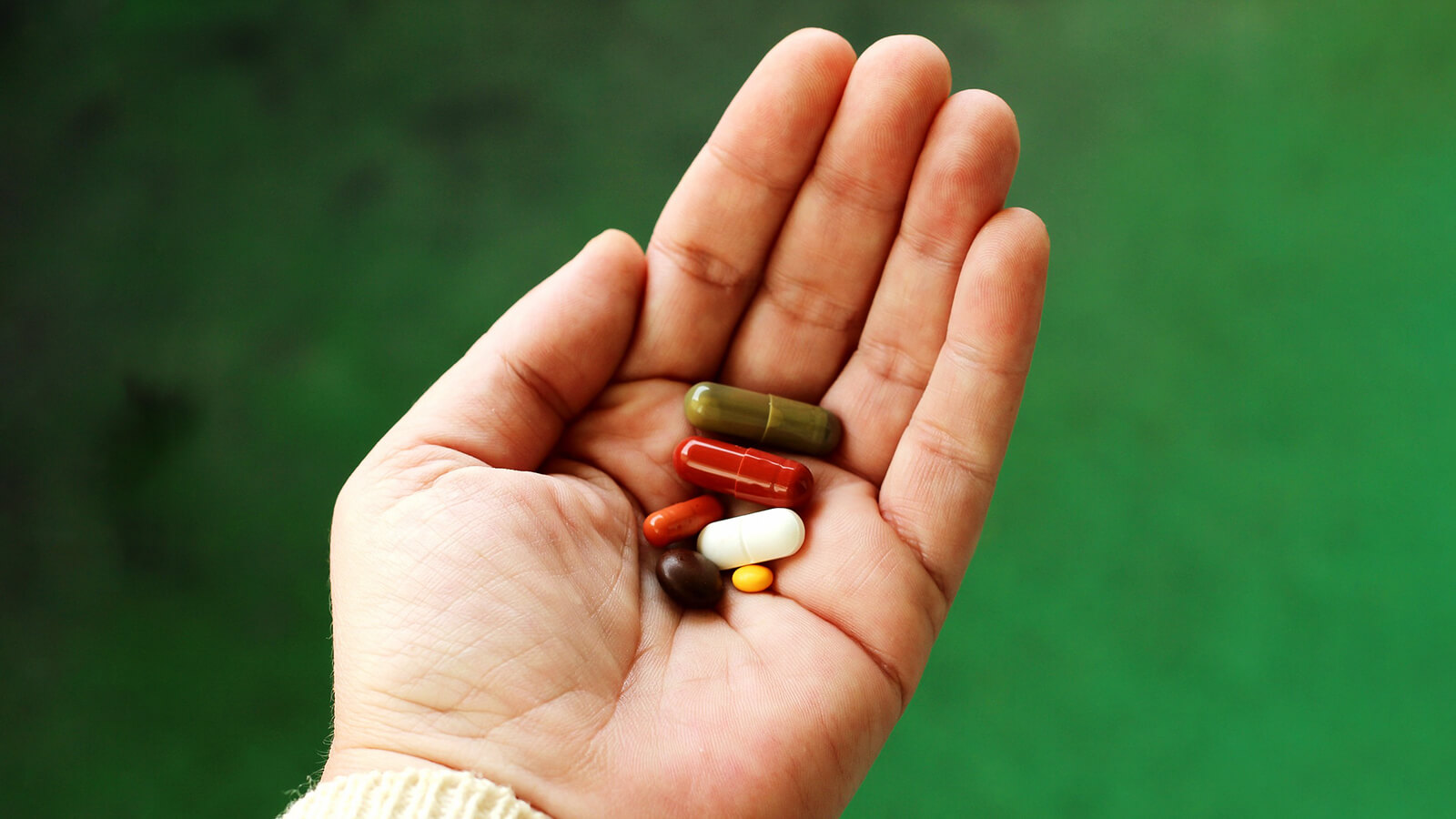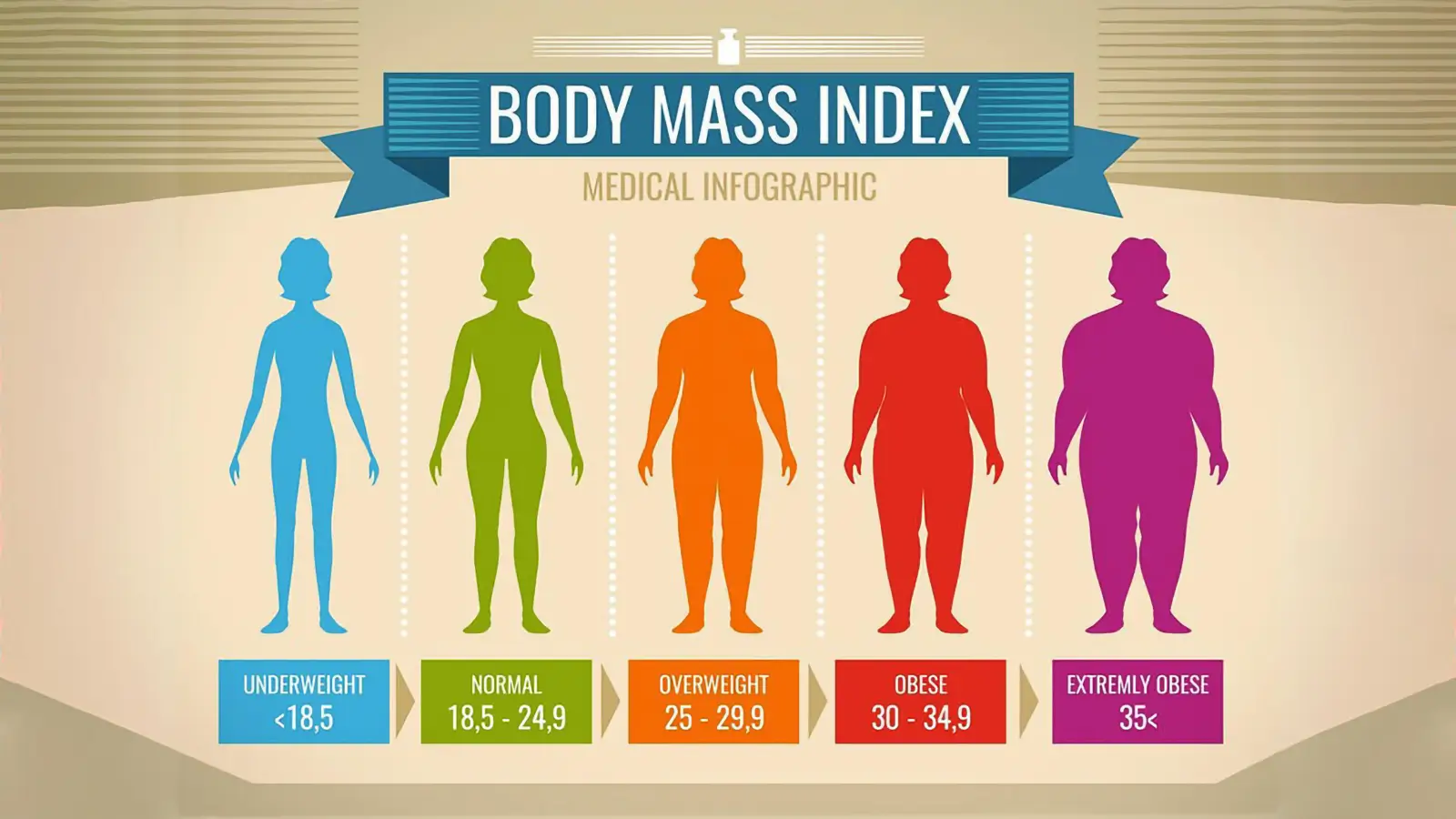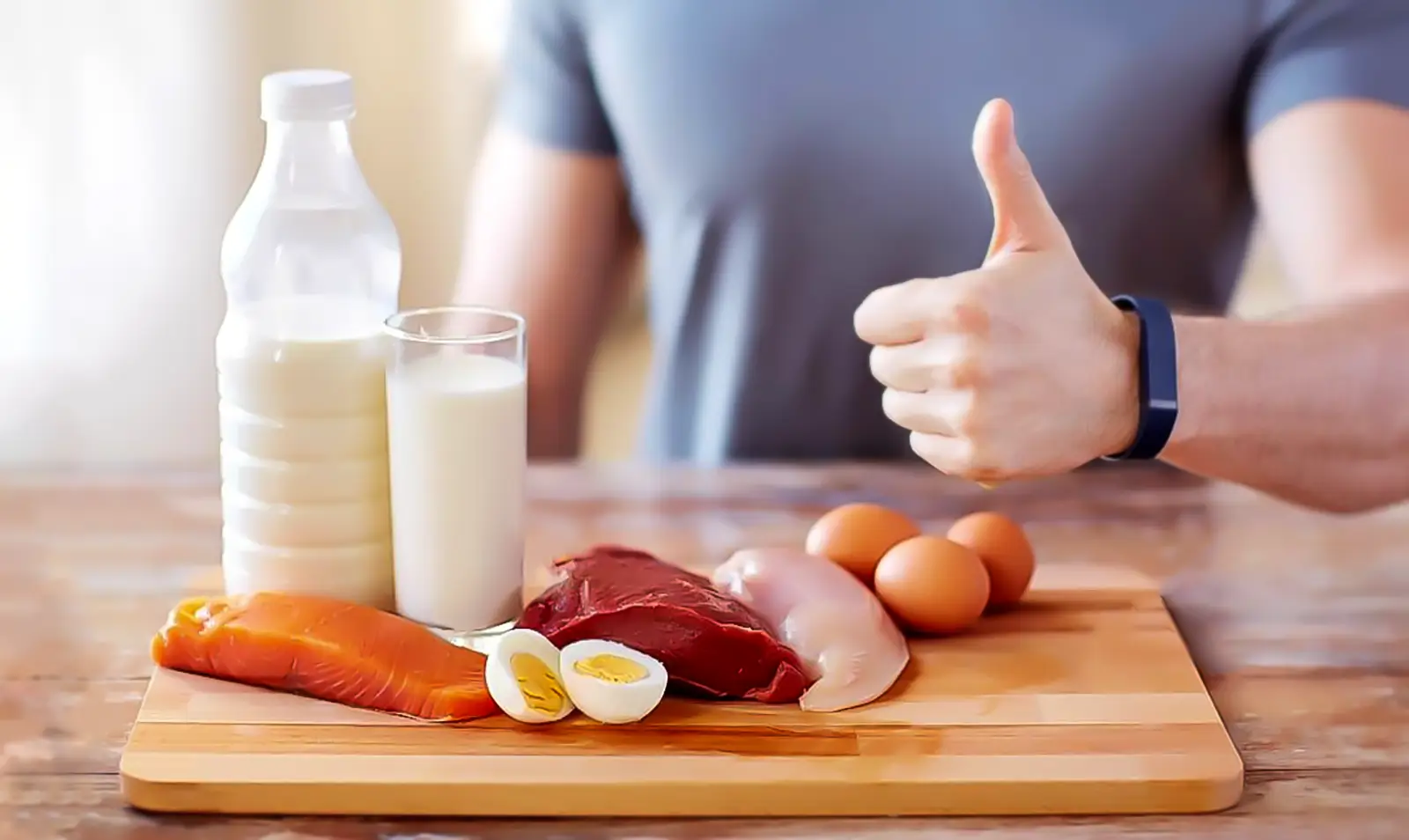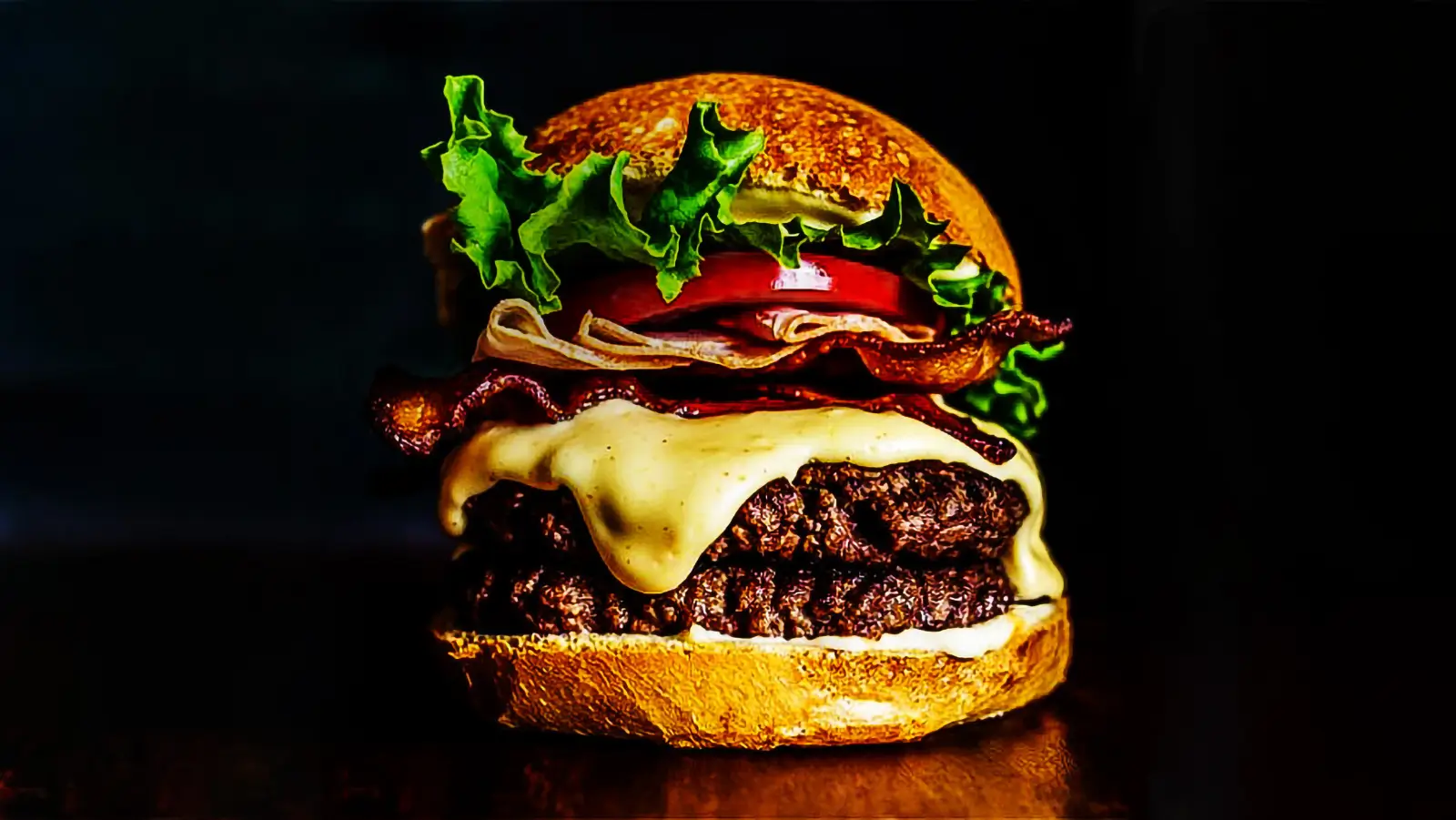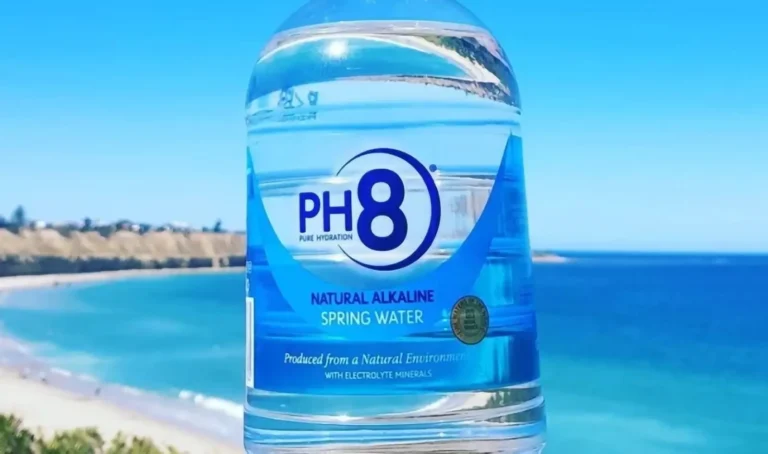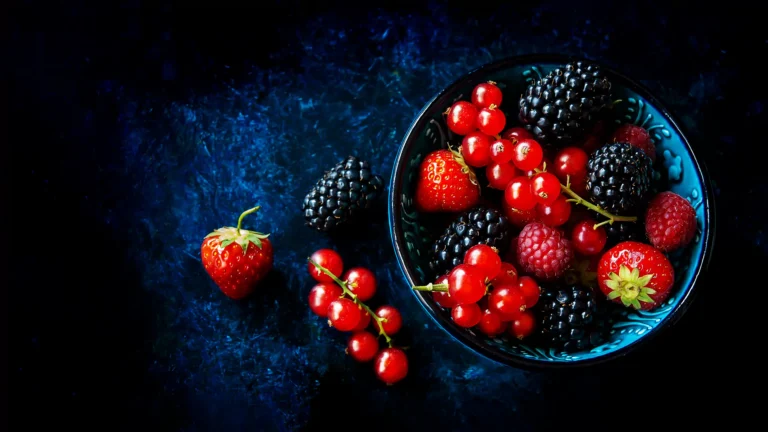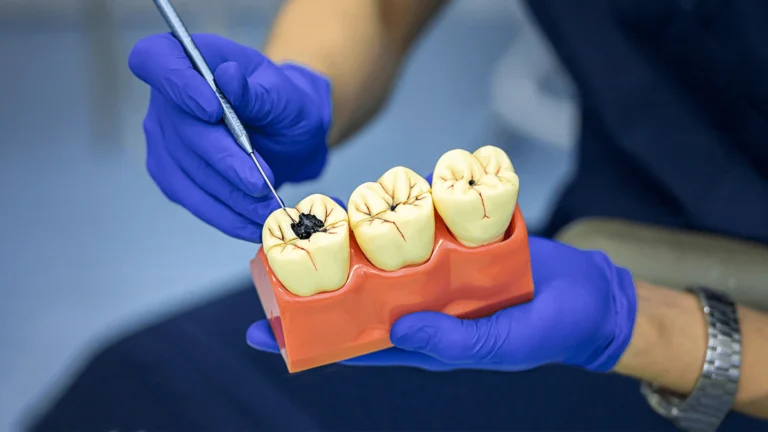QUE la dieta de las directrices de la Nueva pirámide de los alimentos y la supresión de la ciencia
QUE las pautas dietéticas recomiendan una dieta baja en grasas saturadas (proteína animal), el azúcar, la sal y alta en frutas y verduras, como un requisito para hacer frente a la epidemia aumento de las enfermedades crónicas en todo el mundo.
Milos Pokimica
Escrito por: Milos Pokimica
Revisado Médicamente Por: Dr. Xiùying Wáng, M.D.
Actualizado el 13 de septiembre de 2023Usted puede leer todo acerca de la ciencia de la nutrición aquí en mi blog ahora, pero la gente no se da cuenta de que hace apenas varias décadas era herejía siquiera hablar de la pandemia de la obesidad y cuánto exactamente los alimentos procesados son malos. Y ahora es un problema mundial.
Una dieta occidental con azúcar, harina blanca, productos animales, grasas, etc. había sustituido a las judías, las semillas, los frutos secos y los cereales integrales. Promover alimentos sanos como las judías no se lleva bien con las grandes empresas.
Ya no se trata sólo de las grandes tabacaleras, sino también de Big Soda, Big Mac, etc. Todas estas industrias se protegen utilizando las mismas tácticas. Algunas de estas tácticas son los grupos de presión, los pleitos, la investigación financiada por la industria y el marketing.
En 2003, la Organización Mundial de la Salud publicó un borrador de informe en el que se esbozaba la estrategia global y las nuevas directrices dietéticas de la OMS para abordar los problemas de la dieta abogando por cosas que no gustaban a la industria, como reducir el consumo de azúcar y grasas.
A los pocos días industria alimentaria consiguió el apoyo de los altos cargos del gobierno estadounidense y dirigió una campaña contra el proyecto y la propia OMS que culminó con la amenaza del Congreso de retirar la fundación estadounidense de la OMS.
Lo mismo ocurrió anteriormente cuando Estados Unidos defendió a la industria tabacalera. Sin embargo, la amenaza de la industria azucarera fue considerada por las personas de dentro de la OMS como aún peor que cualquier otra presión anterior que hubieran recibido. Como se denunciaba en un memorando interno (Cannon, 2004) El gobierno estadounidense tenía una lista de exigencias como la supresión de todas las referencias al informe de consulta de expertos de la OMS y la OMS, la supresión de todas las referencias al azúcar, la grasa, la sal y los aceites, y la supresión o modificación de todas las referencias sobre la cuestión de la comercialización y la publicidad dirigidas a los niños.
La presión política no consiguió que la OMS retirara el informe, pero sí que "suavizara" muchas de sus recomendaciones. The article named: "Dieta, nutrición y prevención de enfermedades crónicas" se presentó formalmente y concluía que era necesaria una dieta baja en grasas saturadas, azúcar y sal y rica en frutas y verduras para hacer frente al aumento epidémico de las enfermedades crónicas en todo el mundo.
"Los parámetros generales para un diálogo con las industrias alimentarias son menos grasas saturadas; más frutas y verduras; etiquetado eficaz de los alimentos; e incentivos para la comercialización y producción de productos más sanos. Al trabajar con los socios de la publicidad, los medios de comunicación y el entretenimiento, es necesario insistir en la importancia de transmitir mensajes claros e inequívocos a niños y jóvenes. La "alfabetización sanitaria y nutricional" global requiere un gran aumento de la atención y los recursos".
Ahora incluso la OMS, una institución globalista de la ONU creada por intereses especiales, aboga por añadir más dieta vegana al estilo de vida occidental medio. Sin embargo, ha desaparecido la referencia al exhaustivo informe científico, así como su llamamiento para que las recomendaciones se traduzcan en directrices dietéticas nacionales, en el marco de las políticas alimentarias nacionales y en la legislación nacional. La llamada pirámide alimentaria. A partir de 2003 se repitió lo mismo una y otra vez. Estados Unidos bloquea el consenso para actuar contra las enfermedades no transmisibles.
Repost por si mismo no era nada nuevo o de esa manera no abogaba por nada que no se conociera en los últimos 50 años. Iba en una línea similar a la del Informe McGovern de 1977 (El Informe McGovern - Intereses especiales y supresión de la ciencia). La única diferencia es que 30 años después sigue sin haber diferencias y que la ciencia siempre se ve relegada por intereses privados. Esta vez el informe fue publicado por la propia OMS. Cuando alguien quiere discutir conmigo, y normalmente son personas que quieren justificar sus malos hábitos, les pido que lean este informe y el Informe McGovern porque son documentos públicos y tienen algún tipo de autoridad. No pueden ser simplemente "desacreditados". En realidad, cuando la gente los lee entiende que han sido manipulados, pero en la mayoría de los casos sigue sin importarles y eso está bien. Tienes derecho a fumar, beber o consumir drogas, pero el problema surge cuando la agenda se presenta como verdad. Y entonces se convierte en una manipulación en toda regla. Alguien puede estar dispuesto a cambiar sus hábitos alimenticios por razones de salud o tal vez tenga algunas enfermedades crónicas y entonces el verdadero problema es encontrar toda la verdad.
Y la verdad es que el cáncer es una enfermedad de estilo de vida y los genes no causan más que un par de por ciento de los casos. Las cardiopatías y los accidentes cerebrovasculares son enfermedades relacionadas con el estilo de vida, al igual que la diabetes de tipo 2. Yo diría que incluso la de tipo 1 es una enfermedad del estilo de vida por razones que trataría en otro artículo. La ciencia está aquí y lleva aquí mucho tiempo. La razón de la existencia de este sitio web y de mis libros es exactamente por esta agenda. Y ellos lo dijeron:
"Las enfermedades crónicas son, en gran medida, enfermedades prevenibles. Aunque puede ser necesaria más investigación básica sobre algunos aspectos de los mecanismos que relacionan la dieta con la salud, las pruebas científicas actualmente disponibles proporcionan una base suficientemente sólida y plausible para justificar la adopción de medidas ahora."
Lo primero que hay que tener en cuenta es que los cambios en el estilo de vida contribuyen a la salud en general. La ciencia está hecha al respecto. El consumo de tabaco y alcohol, las drogas recreativas, la falta de actividad física es lo que la gente piensa cuando alguien habla de estilo de vida. Todo eso está bien, pero cuando los científicos que se ocupan de la nutrición hablan de estilo de vida, y cuando yo hablo de estilo de vida en realidad me refiero a la dieta. La dieta es el número uno en todos los demás cambios de estilo de vida.
Por ejemplo, cuando sigues una dieta rica en proteínas tu IGF-1 aumenta y entonces tienes un mayor riesgo de desarrollar cáncer. La Igf-1 no es una hormona de crecimiento, no es un factor de crecimiento similar a la insulina. Lo que hace es que cuando el cerebro detecta que tienes todos los aminoácidos esenciales en el torrente sanguíneo libera IGF-1 y entonces esa hormona se une al receptor celular y lo que hace es básicamente decirle a la célula que se divida. Si la célula no está dañada no hará nada pero anularla sí. Para poner esto en perspectiva, la correlación entre el cáncer de cualquier tipo y el IGF-1 crónicamente elevado causado por una dieta dominada por proteínas animales de alta calidad es mayor que la correlación entre el tabaquismo y el cáncer de pulmón. Ahora imagina todos los movimientos sociales y la concienciación sobre el tabaquismo y el estigma que existen hoy en día y luego multiplica ese estigma por la proteína animal. Eso sería un enfoque normal o digamos científico y hay muchas más correlaciones entre la dieta occidental dominada por alimentos procesados y la proteína animal que la correlación con "sólo" el cáncer.
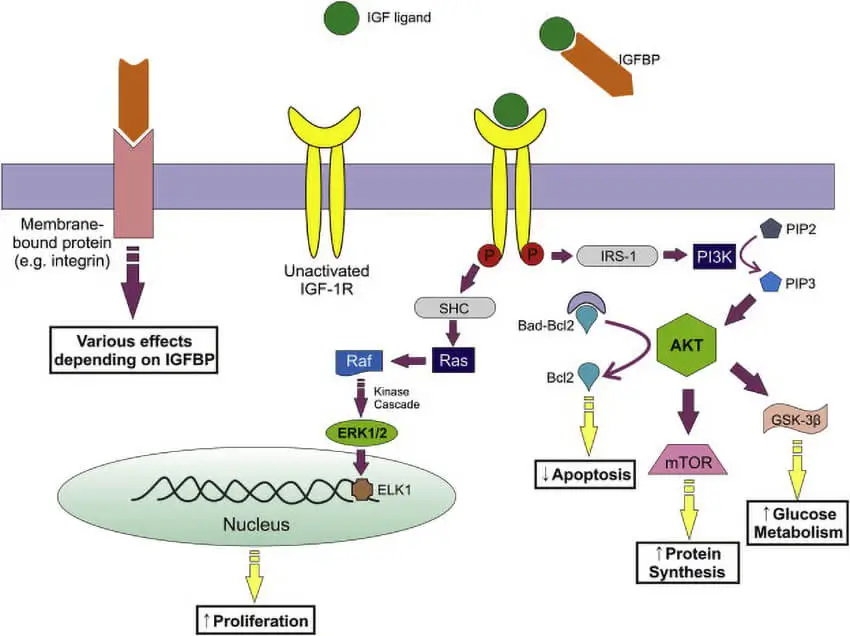
Veamos ahora este informe con más detalle y tengamos en cuenta que se trata de un informe "aguado".
"Al establecer formas de disminuir la carga de enfermedades crónicas como la obesidad, la diabetes de tipo 2, las enfermedades cardiovasculares (incluida la hipertensión y el ictus), el cáncer, las enfermedades dentales y la osteoporosis, este informe propone que la nutrición se sitúe en primera línea de las políticas y programas de salud pública."
¿Entiende ahora esta cita? Nos están diciendo que la nutrición debe situarse a la cabeza de las políticas de salud pública y no el ejercicio u otros cambios en el estilo de vida. Eso no significa que no sean importantes, sino que la nutrición es el factor más importante.
"Durante la última década, la rápida expansión en varios campos científicos relevantes y, en particular, en la cantidad de pruebas epidemiológicas basadas en la población ha ayudado a aclarar el papel de la dieta en la prevención y el control de la morbilidad y la mortalidad prematura derivadas de las enfermedades no transmisibles (ENT). También se han identificado algunos de los componentes específicos de la dieta que aumentan la probabilidad de aparición de estas enfermedades en los individuos, así como las intervenciones para modificar su impacto."
Esto no es del todo cierto, pero es políticamente correcto. No es que durante la última década, la ciencia haya correlacionado y encubierto el papel de la dieta en la creación de enfermedades crónicas. La mayor parte de la ciencia era conocida incluso antes de que se publicara el Informe McGovern en 1977. En realidad, la mayor parte de la ciencia correlacionaba los factores de riesgo ya en los años 50 y 60.
"Los rápidos cambios en las dietas y los estilos de vida que se han producido con la industrialización, la urbanización, el desarrollo económico y la globalización de los mercados, se han acelerado en la última década. Esto está teniendo un impacto significativo en la salud y el estado nutricional de las poblaciones, especialmente en los países en desarrollo y en los países en transición. Aunque el nivel de vida ha mejorado, la disponibilidad de alimentos se ha ampliado y diversificado y el acceso a los servicios ha aumentado, también se han producido importantes consecuencias negativas en términos de pautas alimentarias inadecuadas, disminución de las actividades físicas y aumento del consumo de tabaco, con el correspondiente incremento de las enfermedades crónicas relacionadas con la dieta, especialmente entre los pobres.
Los cambios en la economía alimentaria mundial se reflejan en la modificación de las pautas alimentarias, por ejemplo, el aumento del consumo de dietas hipercalóricas, ricas en grasas, sobre todo saturadas, y pobres en hidratos de carbono no refinados.
Debido a estos cambios en las pautas alimentarias y de estilo de vida, las ENT crónicas -incluidas la obesidad, la diabetes mellitus, las enfermedades cardiovasculares (ECV), la hipertensión y los accidentes cerebrovasculares, así como algunos tipos de cáncer- se están convirtiendo en causas cada vez más importantes de discapacidad y muerte prematura tanto en los países en desarrollo como en los de reciente desarrollo, lo que supone una carga adicional para los ya sobrecargados presupuestos nacionales de sanidad".
Si lees un artículo correlacionado sobre el estudio de China (China study- The vegan argument) ya estarás al tanto de esto. Lo que dicen es lo siguiente. La mayor parte de la civilización humana en toda la historia de la humanidad después de la revolución neolítica prosperó con una dieta exclusivamente vegana. Y no sólo eso, era una dieta vegana dominada por el almidón. Podría ser trigo en Europa o maíz en Mesoamérica, o arroz en Asia, no importa. No había una sola sociedad en el mundo que tuviera suficiente carne o productos animales para alimentar a la gente o a los campesinos, excepto el rey y la aristocracia.
Hace apenas cien años, incluso los países occidentales desarrollados prosperaban con una dieta vegana. La carne se comía en Navidad y Acción de Gracias. Sólo tras el descubrimiento de los fertilizantes sintéticos la industria pudo producir alimentos en exceso para los animales. Se necesitan siete calorías de almidón para producir una caloría de carne. Si no lo cree, recuerde lo que un año de malas cosechas le hizo a Irlanda. Toda la nación vivía de patatas. Cuando las patatas fallan, un número incalculable de personas mueren de hambre. El recuento total de muertos fue de alrededor de un millón de personas y más de un millón huyeron del país, haciendo que la población del país disminuyera en un 20-25%.

"Los cambios dietéticos que caracterizan la ''transición nutricional'' incluyen cambios cuantitativos y cualitativos en la dieta. Los cambios dietéticos adversos incluyen cambios en la estructura de la dieta hacia una dieta de mayor densidad energética con un mayor papel de las grasas y los azúcares añadidos en los alimentos, un mayor consumo de grasas saturadas (principalmente de origen animal), una menor ingesta de hidratos de carbono complejos y fibra dietética, y una menor ingesta de frutas y verduras. Estos cambios dietéticos se ven agravados por cambios en el estilo de vida que reflejan una reducción de la actividad física en el trabajo y durante el tiempo de ocio."
"Existe una fuerte relación positiva entre el nivel de renta y el consumo de proteínas animales, con un aumento del consumo de carne, leche y huevos a expensas de los alimentos básicos. Debido al reciente y pronunciado descenso de los precios, los países en desarrollo se están embarcando en un mayor consumo de carne a niveles de producto interior bruto mucho más bajos que los países industrializados hace unos 20-30 años. Entre 1964-1966 y 1997-1999, el consumo per cápita de carne en los países en desarrollo aumentó en 150% y el de leche y productos lácteos en 60%. Para 2030, el consumo per cápita de productos ganaderos podría aumentar en otras 44%. Se prevé que el consumo de aves de corral sea el que crezca más rápidamente".
Lo que dicen en este informe es que cuando los países en desarrollo empiezan a industrializarse y el nivel de vida sube, la gente empieza a tener más dinero para gastar en alimentos. Sólo utilizan la terminología políticamente correcta de "transición nutricional". Pero eso no es más que una forma elegante que utilizan los científicos para decir que cuando uno sale de la pobreza lo primero que hace no es comprarse una casa o un coche, sino comprar carne y alimentos procesados. O dicho de otro modo, tienen dinero para comer carne y otras porquerías procesadas en lugar de arroz. Y entonces llega el auge de las enfermedades de la opulencia. En las poblaciones rurales de China no había infartos, cáncer ni diabetes en los veganos subdesarrollados que comían dietas dominadas por el almidón. Ahora sí los hay.
"Se ha previsto que, para 2020, las enfermedades crónicas serán responsables de casi tres cuartas partes de todas las muertes en el mundo, y que el 71% de las muertes por cardiopatía isquémica (CI), el 75% de las muertes por accidente cerebrovascular y el 70% de las muertes por diabetes se producirán en los países en desarrollo. El número de personas con diabetes en el mundo en desarrollo se multiplicará por más de 2,5, pasando de 84 millones en 1995 a 228 millones en 2025. A escala mundial, el 60% de la carga de las enfermedades crónicas se producirá en los países en desarrollo".
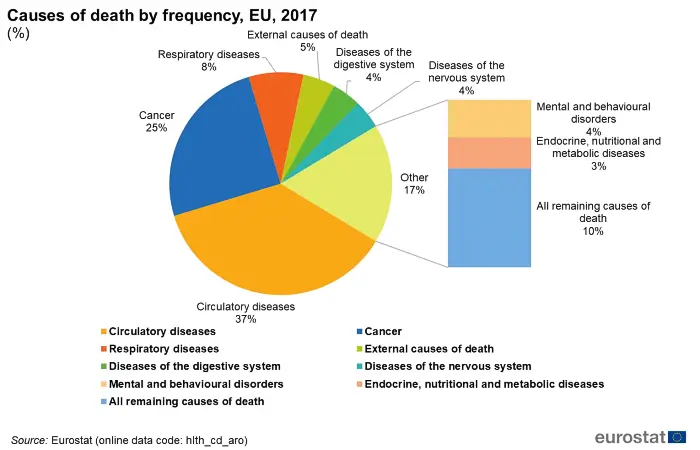
"La nutrición está pasando a primer plano como uno de los principales factores determinantes modificables de las enfermedades crónicas, y cada vez hay más pruebas científicas que respaldan la opinión de que las alteraciones de la dieta tienen fuertes efectos, tanto positivos como negativos, sobre la salud a lo largo de toda la vida. Y lo que es más importante, los ajustes dietéticos no sólo pueden influir en la salud actual, sino que pueden determinar si un individuo desarrollará o no enfermedades como el cáncer, las enfermedades cardiovasculares y la diabetes mucho más adelante en su vida. Sin embargo, estos conceptos no han provocado un cambio en las políticas ni en la práctica. En muchos países en desarrollo, las políticas alimentarias siguen centrándose únicamente en la desnutrición y no abordan la prevención de las enfermedades crónicas.
Este informe aboga por un cambio en el marco conceptual para el desarrollo de estrategias de acción, situando la nutrición -junto con los otros principales factores de riesgo de las enfermedades crónicas, a saber, el consumo de tabaco y alcohol- en el primer plano de las políticas y programas de salud pública".
Y esto se debe a la industria. Por eso nunca se habla de este tipo de informes en los medios de comunicación. Querían introducir una nueva pirámide alimentaria más basada en las plantas y fracasaron. Lo mismo que el Informe McGovern y lo mismo que cualquier otro informe. No recomendaron una dieta vegana sino más alimentos integrales basados en plantas y ni siquiera quisieron mencionar la proteína animal como el principal villano, por ejemplo. Se limitan a hablar de grasas saturadas y proteínas animales. Pero, ¿dónde se encuentra la grasa saturada? Predominantemente en los productos animales. Cuando nosotros, como nutricionistas, hablamos de grasas saturadas, sabemos muy bien que usted, como individuo normal, tendrá que reducir el consumo de proteínas animales si quiere reducir el consumo de grasas saturadas. Evitar la manteca de cerdo y la mantequilla es sólo el primer paso, pero a escala de la población, la manteca de cerdo y la mantequilla se utilizan esporádicamente. A escala de la población, para reducir realmente el consumo de grasas saturadas, tendría que haber un cambio general hacia una dieta más basada en plantas.
"Desde hace muchos años se sabe que la dieta desempeña un papel clave como factor de riesgo de las enfermedades crónicas. Lo que es evidente a nivel global es que grandes cambios han barrido el mundo entero desde la segunda mitad del siglo XX, induciendo importantes modificaciones en la dieta, primero en las regiones industrializadas y más recientemente en los países en vías de desarrollo. Las dietas tradicionales, en gran parte vegetales, han sido rápidamente sustituidas por dietas ricas en grasas y densas en energía, con un contenido sustancial de alimentos de origen animal."
Así que allá vamos. No lo digo yo, lo dice QUIÉN. La próxima vez que alguien te hable como si estuvieras en una secta religiosa porque no comes carne y cómo nosotros como especie somos omnívoros y cómo la ciencia ha demostrado que necesitamos comer carne y que se te van a caer los dientes si no bebes leche como mi madre solía decirme, sólo descarga y envíales este informe.
"En Carelia del Norte, las tasas de mortalidad por cardiopatía coronaria ajustadas por edad descendieron drásticamente entre principios de los años setenta y 1995 (16). Los análisis de los tres principales factores de riesgo (tabaquismo, hipertensión arterial, aumento del colesterol plasmático) indican que la dieta -que actúa reduciendo los niveles de colesterol plasmático y de presión arterial- es responsable de la mayor parte de este importante descenso de las enfermedades cardiovasculares. La contribución de la medicación y el tratamiento (fármacos antilípidos e hipotensores, cirugía) fue muy pequeña. Más bien, el descenso se logró en gran medida gracias a la acción comunitaria y a la presión de la demanda de los consumidores en el mercado alimentario."
Así que aquí vamos. Esto es en Finlandia Karelia del Norte, no Corea del Norte. Se han vuelto más veganos. La próxima vez que los confusos del colesterol empiecen a hablar de que las enfermedades del corazón no tienen nada que ver con el colesterol y que necesitamos colesterol para fabricar todas las células de nuestro cuerpo, envíales este informe. Las enfermedades del corazón son causadas por el colesterol y ¿dónde se encuentra el colesterol? Sólo en los productos animales. Nosotros como especie producimos colesterol en nuestros hígados, no es un nutriente esencial para nosotros. No es un nutriente en absoluto. Para los carnívoros, es porque lo comen en cada bocado que no producen el suyo propio. Para nosotros que nunca hemos comido colesterol dietético en los últimos 50 millones de años de nuestra evolución comerlo no es natural. Nuestro cuerpo tratará de eliminar el colesterol, pero debido a que está hecho de lípidos y la grasa y el agua no se mezclan, nuestro cuerpo no sería capaz de eliminarlo con los riñones. La única manera de que nuestro cuerpo puede eliminar el exceso de colesterol es verter de nuevo en los intestinos proceso en la medicina conocida como la excreción transintestinal de colesterol (TICE) con la conciencia subyacente de que habría fibra allí para unirse con él. Debido a que la mayoría de las personas en la escala de población comen alimentos procesados y tienen muy baja ingesta de fibra que sólo se reabsorbe de nuevo. Al final, se pegaría a la pared de las arterias.
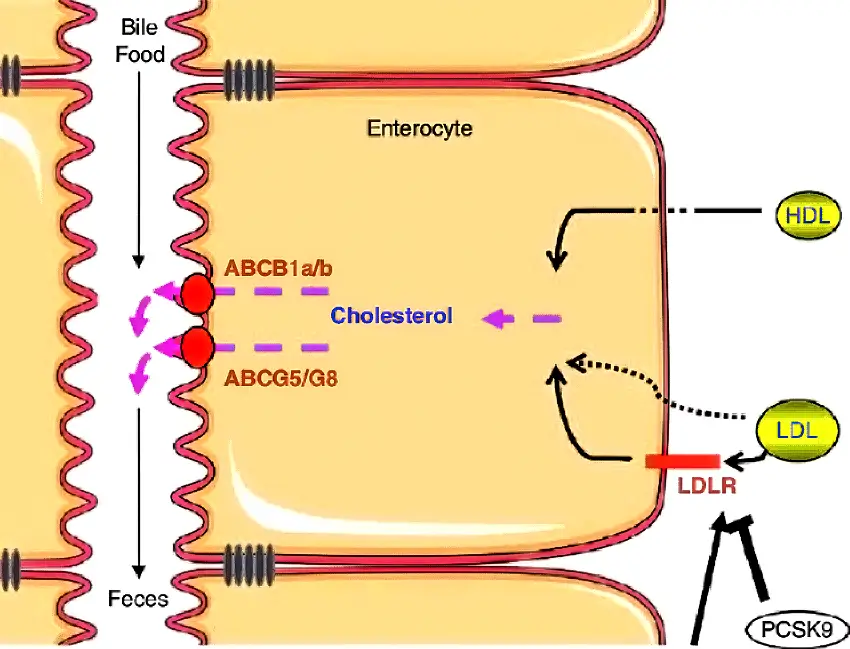
"Los objetivos pretenden invertir o reducir el impacto de los cambios dietéticos desfavorables que se han producido durante el último siglo en el mundo industrializado y, más recientemente, en muchos países en desarrollo. Los objetivos actuales de ingesta de nutrientes también deben tener en cuenta los efectos de los cambios medioambientales a largo plazo, es decir, los que se han producido a lo largo de cientos de años. Por ejemplo, es posible que la respuesta metabólica a las hambrunas periódicas y a la escasez crónica de alimentos ya no represente una ventaja selectiva, sino que, por el contrario, aumente la susceptibilidad a las enfermedades crónicas. Un suministro abundante y estable de alimentos es un fenómeno reciente; no fue un factor hasta el advenimiento de la revolución industrial (o el proceso equivalente en países industrializados más recientemente)."
Para entender esta cita le recomendaré que lea un artículo sobre la autofagia (Restricción calórica, autofagia, longevidad y pérdida muscular). Para todos los animales el hambre es el estado normal de existencia. La muerte por inanición sería más preciso. Tan pronto como haya más comida, más animales sobrevivirán hasta que se alcance una nueva línea de inanición límite, sólo que esta vez con un aumento de la población. Nuestros cuerpos se han adaptado a esta situación, así que ¿qué ocurre cuando se acaba el hambre? Uno de los efectos es un aumento de las tasas de cáncer debido a la falta de autofagia. Se cree que la ausencia de autofagia es una de las principales razones de la acumulación de células dañadas, y esto puede dar lugar a graves complicaciones de salud. La forma más rápida de desactivar la autofagia es comer grandes cantidades de proteína completa. Lo que esto hará es estimular el IGF-1 (factor de crecimiento similar a la insulina 1) y el mTOR (rapamicina), que son potentes inhibidores de la autofagia.
"El sector ganadero se ve sometido a una presión cada vez mayor para satisfacer la creciente demanda de proteínas animales de alto valor. El sector ganadero mundial está creciendo a un ritmo sin precedentes y la fuerza motriz de este enorme aumento es una combinación del crecimiento demográfico, el aumento de los ingresos y la urbanización. Se prevé que la producción anual de carne pase de 218 millones de toneladas en 1997-1999 a 376 millones de toneladas en 2030.
Existe una fuerte relación positiva entre el nivel de renta y el consumo de proteínas animales, con un aumento del consumo de carne, leche y huevos a expensas de los alimentos básicos. Debido al reciente y pronunciado descenso de los precios, los países en desarrollo se están embarcando en un mayor consumo de carne a niveles mucho más bajos del producto interior bruto que los países industrializados hace unos 20-30 años."
Es muy importante que la gente se dé cuenta de esto. Los efectos medioambientales están ahí, pero una cosa más. Todos formamos parte de la naturaleza y aunque nos preocupemos o no por ella, esto es cierto. A la naturaleza no le importamos.
Cuando quemamos bosques para plantar cultivos o simplemente utilizamos la tierra, en general, hacen falta entre 7 y 10 cosechas para agotar la nutrición del suelo o, en otras palabras, los minerales. Esa es la razón por la que antes de la invención de los fertilizantes artificiales la población era inferior a la actual. La expansión de la población no tiene nada que ver con la revolución industrial. Todo se debe a los fertilizantes sintéticos. A medida que la población crece, o de esa manera ni siquiera necesita crecer, pero al igual que el nivel de vida sube la gente quiere más carne y para producir carne se necesita más tierra para cultivar alimentos para los animales.

Tenemos la capacidad de producir alimentos y es un gran debate, pero sólo con el uso de fertilizantes sintéticos.
Podemos tener una agricultura vertical o utilizar tierras regulares que no se utilizan hoy en día, pero sólo con el uso de fertilizantes sintéticos. Hoy en día no existe una forma científica de producir alimentos para 7.000 millones de personas y para todos los animales mediante la agricultura ecológica. No se puede hacer. Y porque tenemos que utilizar la guerra química y estos productos químicos son conocidos como contaminantes orgánicos persistentes, ya que no se degradan en el tiempo y son térmicamente estables y lo que es peor son lipofílicos. Esto significa que estos productos químicos se disuelven en las grasas de los animales y comienzan el proceso conocido como biomagnificación en la cadena alimentaria.
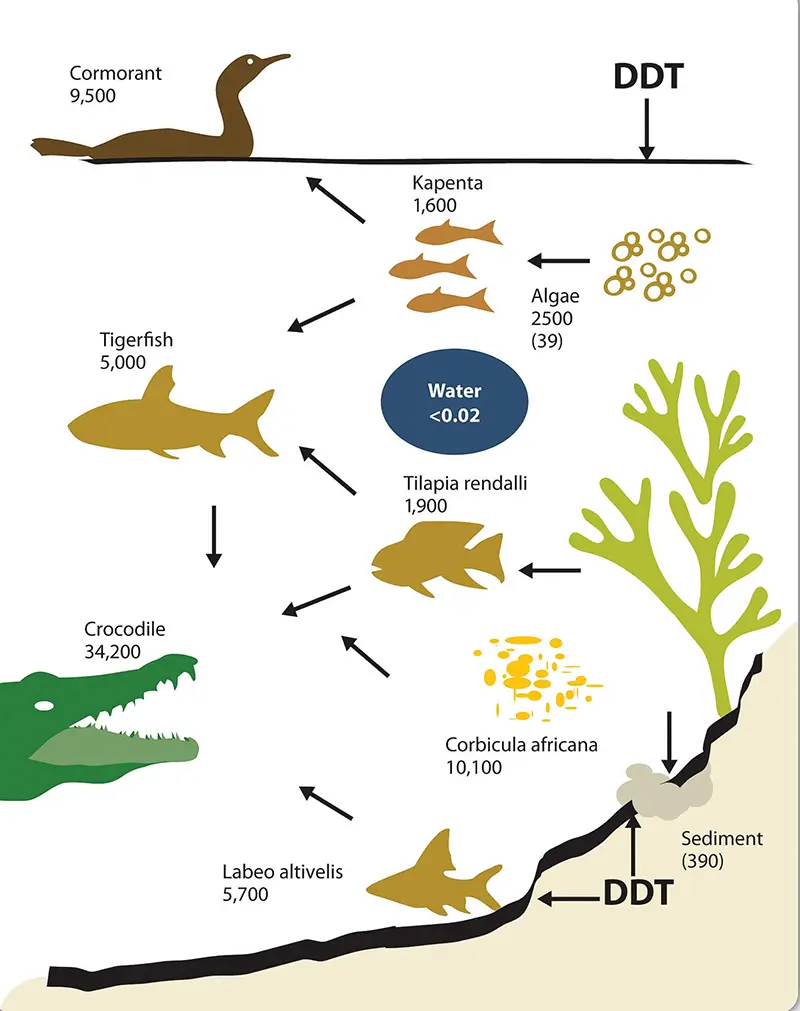
A medida que ascendemos en la cadena alimentaria, la toxicidad aumenta no un cien sino un miles por ciento. Y estos productos químicos simplemente dan vueltas hasta que se alcanza la concentración que causará la toxicidad total y la descomposición del medio ambiente. Si no lo cree, puede leer Primavera silenciosa, publicado en 1962. Más información sobre la toxicidad medioambiental en un artículo relacionado (Toxicidad medioambiental - Es sólo una cadena alimentaria una cadena alimentaria).
El mero hecho de que una cuarta parte de la población muera de cáncer y que el número de espermatozoides haya descendido más de un 70% desde los años 60 y que hoy una de cada cinco parejas no pueda tener hijos demuestra la gravedad del problema. La situación empeorará a medida que el mundo se industrialice. Otra cosa es que cuando cultivamos alimentos sintéticamente las plantas no necesitan más que minerales para crecer, pero ¿y los animales? Necesitamos 100 de ellos.
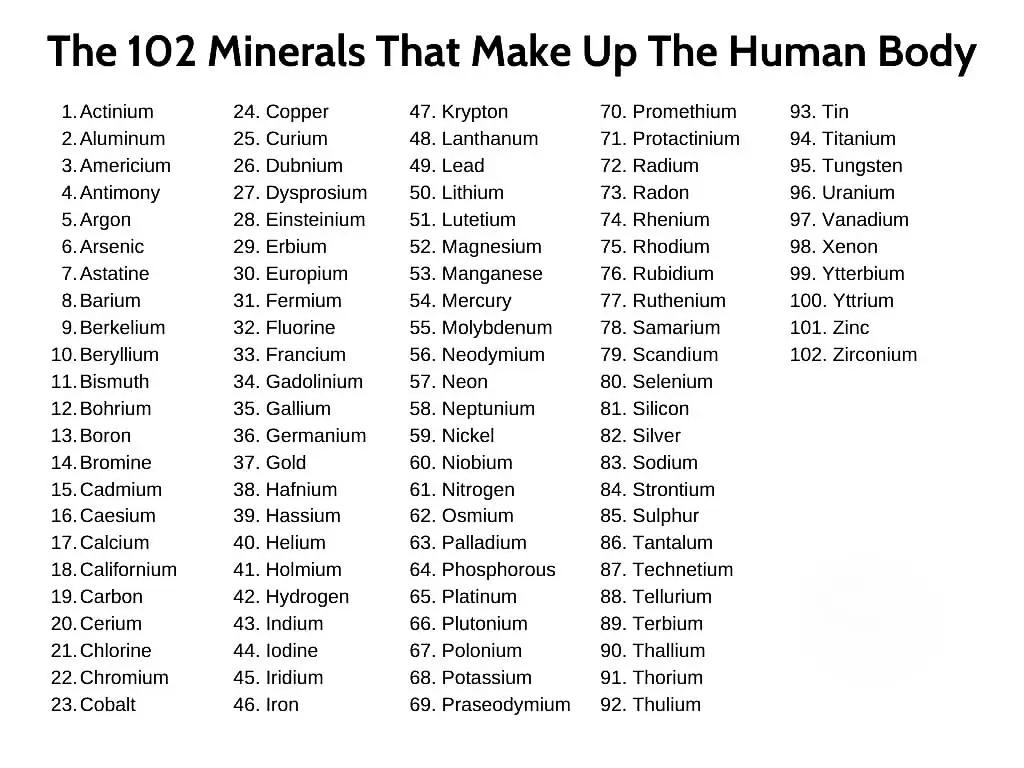
Tienen que ser de escala monoatómica para poder integrarse en nuestras células y los suplementos minerales no son eficaces porque estos minerales son demasiado grandes y se fabrican mediante reacciones químicas. Sólo las plantas pueden fabricar minerales biodisponibles, pero las tierras comerciales están completamente agotadas. La deficiencia de nutrientes sólo va a empeorar. Encima de esto la gente come comida procesada refinada que tiene cero minerales solo por el procesamiento.
Aparte de las flagrantes deficiencias de nutrientes que no pueden evitarse, ¿qué recomendaciones en términos de necesidades macrocalóricas hace el informe? Tenemos que tener en cuenta que este informe sigue sin utilizar toda la ciencia disponible y no promueve una dieta integral basada en plantas como base, sino que sólo aboga por reducir el consumo de grasas saturadas. Así era la ciencia antes y a veces después de la Segunda Guerra Mundial. Durante la Segunda Guerra Mundial hubo lugares que tuvieron que pasar a una dieta vegana basada en el almidón debido a la pobreza y la guerra. Fueron investigados en los años 50 para determinar por qué estos lugares tenían bajos índices cardíacos y de cáncer. Por ejemplo, la isla de Create fue uno de ellos que creó un mito sobre la dieta mediterránea.
La dieta mediterránea no tiene nada que ver con el aceite de oliva o el vino, sino que era la dieta a base de almidón de la gente pobre de Creta (dieta mediterránea- "Maravilla" del aceite de oliva). En realidad, la gente rica de la isla seguía teniendo muertes regulares por cardiopatías incluso durante la guerra porque tenían suficiente carne para comer. Esta correlación entre grasa saturada y enfermedad cardiaca era una semi correlación que es conveniente políticamente porque si comes carne comes grasa saturada. La correlación entre los productos animales y las enfermedades del corazón es más del doble que la correlación entre la grasa saturada y las enfermedades del corazón. Pero aún así, este punto de vista políticamente correcto que no cambia las directrices de nutrición sigue prevaleciendo. En las que se refieren a las grasas, recomiendan reducir el consumo a no más del 10 por ciento de las calorías procedentes de grasas saturadas en general. Hay que tener en cuenta que un gramo de grasa tiene 9 calorías. Es el alimento con mayor densidad energética. Una cucharada sopera de aceite tiene 130 calorías y ya te situaría entre el 5 y el 7 por ciento de las calorías totales consumidas. Sólo una cucharada.
"Las recomendaciones para la grasa total están formuladas para incluir a los países en los que la ingesta habitual de grasa suele ser superior al 30%, así como a aquellos en los que la ingesta habitual puede ser muy baja, por ejemplo inferior al 15%. Un aporte energético total de grasas de al menos el 20% es compatible con una buena salud. Sin embargo, los grupos muy activos con dietas ricas en verduras, legumbres, frutas y cereales integrales pueden mantener una ingesta total de grasas de hasta el 35% sin riesgo de un aumento de peso poco saludable.
En SAD (dieta americana estándar) de grasa representa unas 600 calorías sólo de aceites añadidos y si comes fritos es mucho más. Esto no cuenta las calorías de los alimentos enteros que tienen grasa en su interior, como los frutos secos, las semillas, los huevos o la carne.
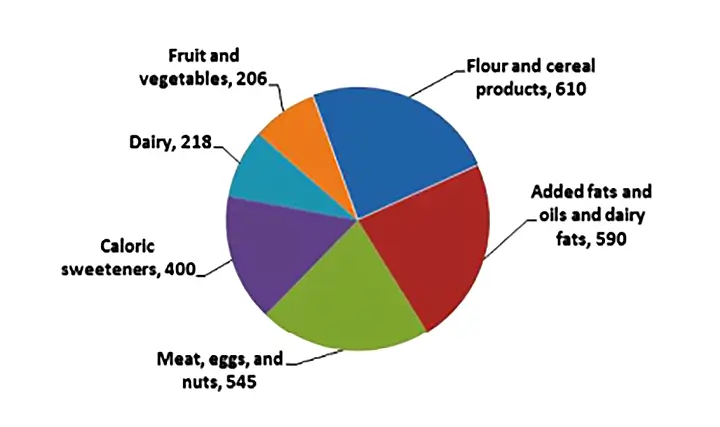
¿Y las recomendaciones sobre el azúcar?
"Es un hecho reconocido que una mayor ingesta de azúcares libres pone en peligro la calidad nutritiva de las dietas al proporcionar una cantidad significativa de energía sin nutrientes específicos.
La Consulta consideró que la restricción de azúcares libres también podía contribuir a reducir el riesgo de aumento de peso no saludable, señalando que:
(1) Los azúcares libres contribuyen a la densidad energética global de las dietas. Los azúcares libres favorecen un balance energético positivo. Estudios agudos y a corto plazo en voluntarios humanos han demostrado un aumento de la ingesta energética total cuando se incrementa la densidad energética de la dieta, ya sea por azúcares libres o por grasas. Se ha demostrado que las dietas con un contenido limitado de azúcares libres reducen la ingesta total de energía e inducen la pérdida de peso.
(2) Las bebidas ricas en azúcares libres aumentan la ingesta total de energía al reducir el control del apetito. Por lo tanto, la reducción compensatoria de la ingesta de alimentos tras el consumo de bebidas ricas en azúcares es menor que cuando se proporcionan alimentos adicionales de contenido energético equivalente. Un reciente ensayo aleatorizado demostró que cuando se consumen bebidas refrescantes ricas en azúcares libres se produce una mayor ingesta de energía y un aumento progresivo del peso corporal en comparación con las bebidas sin energía que son edulcorado artificialmente. Los niños con un consumo elevado de refrescos ricos en azúcares libres tienen más probabilidades de padecer sobrepeso y ganar peso en exceso.
La Consulta reconoció que un objetivo poblacional para los azúcares libres inferior al 10% de la energía total es controvertido".
No es controvertida en términos científicos, sino políticos. Lo que esta recomendación significaría es que el gobierno y esto significa que las escuelas públicas que enseñan a los niños sobre la vida tendrían que prohibir físicamente las bebidas gaseosas de las escuelas y el chocolate y todos los demás dulces y tendrían que promover políticas de cero azúcar. Además, cuando el gobierno recomienda algo, tiene que aplicarlo en todas partes, desde el ejército hasta la guardería. No más dulces. No más refrescos. No más zumos de fruta. No más pasteles.
Por otro lado, la gente simplemente ignoraría este tipo de recomendación, así que es un debate dentro de la ciencia de la nutrición, ¿deberías abogar por algo que sabes que nadie seguiría y conseguir toda la ira del estado profundo en tu espalda o deberías establecer un objetivo más realista que tenga una oportunidad de tener éxito si calculas los efectos de este objetivo más realista que es básicamente una mentira, pero que tendría más beneficios a escala de la población en términos de salud pública? Tenemos que tener en cuenta las tasas de diabetes también.
Entonces, como nutricionista, ¿debo contarle toda la verdad y usted decide lo que va a hacer o no?
¿Y las recomendaciones sobre obesidad y diabetes?
"La asociación entre el aumento excesivo de peso, la adiposidad central y el desarrollo de diabetes de tipo 2 es convincente. Esta asociación se ha demostrado repetidamente en estudios longitudinales en diferentes poblaciones, con un llamativo gradiente de riesgo aparente con niveles crecientes de IMC, aumento de peso en la edad adulta, perímetro de cintura o relación cintura-cadera. En estudios epidemiológicos observacionales, una ingesta elevada de grasas saturadas se ha asociado a un mayor riesgo de intolerancia a la glucosa y a niveles más elevados de glucosa e insulina en ayunas. Las proporciones más elevadas de ácidos grasos saturados en los lípidos séricos o los fosfolípidos musculares se han asociado a una mayor insulina en ayunas, una menor sensibilidad a la insulina y un mayor riesgo de diabetes de tipo 2. Un mayor contenido de ácidos grasos insaturados de origen vegetal y de ácidos grasos poliinsaturados se ha asociado a un menor riesgo de diabetes de tipo 2 y a concentraciones más bajas de glucosa en ayunas y a las 2 horas. Además, una mayor proporción de ácidos grasos poliinsaturados de cadena larga en los fosfolípidos del músculo esquelético se ha asociado a una mayor sensibilidad a la insulina. En estudios de intervención en humanos, la sustitución de ácidos grasos saturados por insaturados produce una mejora de la tolerancia a la glucosa y una mayor sensibilidad a la insulina."
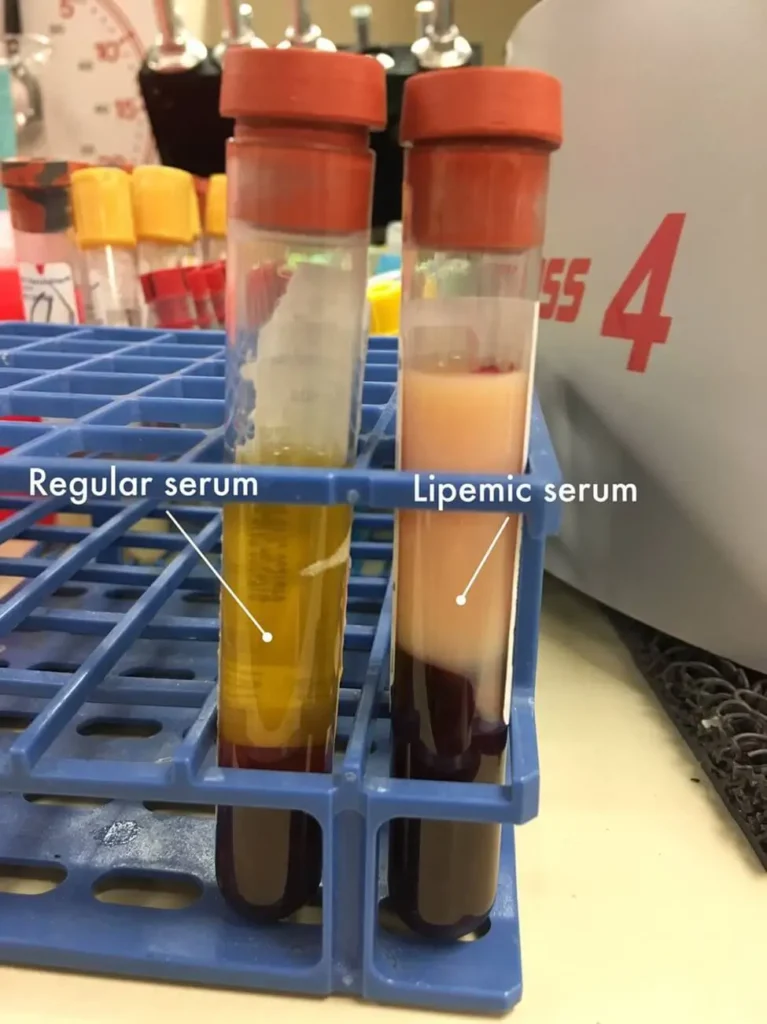
La gente no entiende por qué la obesidad está correlacionada con la diabetes. Una de las razones principales se debe a un proceso conocido como efecto indirecto. Cuando se come carne rica en grasas saturadas, o en otras palabras, carne animal, huevos o lácteos, se va a tener suero lipémico después de la comida. Toda la grasa de la comida va a entrar en el torrente sanguíneo y hasta que se elimine su sangre tendrá altos niveles de ácidos grasos flotando alrededor. El problema es que no hay grasa saturada a ese nivel en el reino vegetal. La grasa saturada se encuentra en el reino animal. Hay coco y algunas especies de plantas que tienen grasa saturada en grandes cantidades, pero predominantemente proviene de los tejidos animales. Debido a que no hemos estado expuestos a un nivel tan alto de grasa saturada durante nuestros 50 millones de años de evolución, no estamos adaptados para lidiar bien con ella. Crea lipotoxicidad. Los AGL o Ácidos Grasos Libres o simplemente la grasa en el torrente sanguíneo produce inflamación de forma natural. Cuando la grasa se descompone hay subproductos tóxicos y estrés oxidativo que bloquean la vía del receptor de insulina y conducen a la resistencia a la insulina en el músculo. A medida que aumenta el nivel de grasa en el torrente sanguíneo, disminuye la capacidad del organismo para eliminar el azúcar. Los derivados de los ácidos grasos interfieren en la función de las células beta y, en última instancia, provocan su muerte por lipoapoptosis. En las personas obesas las células grasas están hinchadas, lo que significa que tenemos un número constante de ellas. Simplemente absorben más grasa y aumentan de tamaño a medida que ganamos peso. Llega un momento en que las células adiposas no pueden absorber más grasa y empiezan a derramar parte de la grasa de vuelta. En las personas obesas, debido al efecto de desbordamiento, el suero es siempre lipémico, lo que crea una inflamación crónica y una resistencia crónica a la insulina y, con el tiempo, la lipotoxicidad mata directamente las células beta productoras de insulina en el páncreas.
Las grasas saturadas son exactamente las causantes de la diabetes, junto con las proteínas animales.
Las dietas paleo, tipo Atkins, ricas en grasas y proteínas no son adecuadas para los prediabéticos. Ninguno de los productos de origen animal lo son. Más información sobre las causas de la diabetes aquí (Causas de la diabetes y grasas saturadas - El argumento vegano).
"Una ingesta elevada de grasas totales también se ha asociado a concentraciones más elevadas de insulina en ayunas y a un menor índice de sensibilidad a la insulina. Considerados en su conjunto, estos hallazgos indican una probable relación causal entre los ácidos grasos saturados y la diabetes de tipo 2, y una posible asociación causal entre la ingesta total de grasas y la diabetes de tipo 2". Los dos ensayos controlados aleatorizados que mostraron un potencial de modificación del estilo de vida para reducir el riesgo de progresión de la intolerancia a la glucosa a la diabetes de tipo 2 incluían consejos para reducir las grasas totales y saturadas, pero en ambos ensayos es imposible desentrañar los efectos de la manipulación dietética individual."
¿Y las cardiopatías?
"Las asociaciones convincentes para reducir el riesgo de ECV incluyen el consumo de frutas (incluidas las bayas) y verduras, pescado y aceites de pescado (ácido eicosapentaenoico [EPA] y ácido docosahexaenoico [DHA]), alimentos ricos en ácido linoleico y potasio, así como la actividad física y un consumo de alcohol de bajo a moderado. Mientras que la ingesta de vitamina E no parece tener relación con el riesgo de ECV, existen pruebas convincentes de que los ácidos mirístico y palmítico, los ácidos grasos trans, la ingesta elevada de sodio, el sobrepeso y el consumo elevado de alcohol contribuyen a aumentar el riesgo. Un nivel de evidencia ''probable'' demuestra una disminución del riesgo para el ácido a-linolénico, el ácido oleico, las NSP, los cereales integrales, los frutos secos (sin sal), el folato, los esteroles y estanoles vegetales, y ninguna relación para el ácido esteárico. Existe un probable aumento del riesgo derivado del colesterol dietético y del café hervido sin filtrar. Las posibles asociaciones para reducir el riesgo incluyen la ingesta de flavonoides y el consumo de productos de soja, mientras que las posibles asociaciones para aumentar el riesgo incluyen las grasas ricas en ácido láurico, los suplementos de b-caroteno y el deterioro de la nutrición fetal.
La inflamación crónica destruye las células epiteliales de los vasos sanguíneos, lo que provoca la destrucción de todo el sistema cardiovascular del organismo, venas verrugosas, etc. El colesterol crea trombosis y estrechamiento de las arterias. Las grasas saturadas (ácidos mirístico y palmítico) aumentan la inflamación y crean lipotoxicidad. Los antioxidantes y otros fitoquímicos disminuir la inflamación crónica. Las barreras sólo tienen más antioxidantes, puede ver toda la tabla ORAC aquí.
Este informe es exhaustivo y consta de 150 páginas. Si tiene tiempo, le sugiero que lo descargue y lo lea. He intentado resumirlo brevemente aquí. Es un informe aguado con algunos de los hallazgos científicos que faltan debido al consenso subyacente que existe en la comunidad científica. Pero es un paso en la dirección correcta dentro de lo que cabe. La verdadera ciencia abogaría por una dieta completa basada en alimentos vegetales, orgánicos y nutricionalmente optimizados, con no más de un cinco por ciento de productos animales y cero, repito, cero calorías procedentes de alimentos refinados. Sería una política que obligaría a prohibir la venta de bebidas con cafeína como la Coca-Cola a los niños y prohibiría todos los alimentos procesados en las escuelas y en cualquier otra institución controlada por el Estado. Cambiaría por completo la pirámide alimentaria y las recomendaciones dietéticas. Obligaría a todos los trabajadores de la salud, especialmente a los médicos, a someterse a pruebas para comprobar sus conocimientos sobre nutrición e impondría la nutrición en las facultades de medicina. También sería un asalto en toda regla a los cárteles químicos y no sólo eso. Sería un asalto al control de la población y no me refiero a la expansión de la población, sino al control directo de la población. En este informe, los científicos han ido tan lejos como se les permite ir, y usted como lector tendría que leer entre líneas.
¿Cuál fue la recomendación final de este informe?
Si tienes prediabetes o diabetes, nada de grasas saturadas o lo que es lo mismo, carne animal, lácteos, huevos, azúcar de caña, harinas refinadas, refrescos o cualquier tipo de alimento refinado.
Si tiene diabetes, su dieta debe basarse en alimentos integrales de origen vegetal.
Si padece una enfermedad cardiaca, su dieta debe basarse en alimentos integrales de origen vegetal.
Si usted es obeso debido a la coloración de la obesidad con diabetes y enfermedades del corazón su dieta es una dieta basada en plantas de alimentos integrales.
Si tienes cáncer, tu dieta debe ser una dieta integral basada en plantas y de cultivo ecológico para evitar la toxicidad.
Y no lo digo sólo yo, sino QUIÉN.
Si no tiene ninguna enfermedad crónica, ¿cuál es la recomendación de la OMS?
"Algunas pruebas disponibles sugieren que, en el plazo de una semana, se requieren al menos 20 y 44 probablemente hasta 30 tipos de alimentos biológicamente distintos, con énfasis en los alimentos vegetales, para una dieta sana.
Las implicaciones de las recomendaciones serían aumentar el consumo de frutas y verduras, incrementar el consumo de pescado y modificar los tipos de grasas y aceites, así como la cantidad de azúcares y almidón consumidos, especialmente en los países desarrollados. Es poco probable que la tendencia actual a aumentar las proteínas animales en las dietas de los países en transición económica se invierta en aquellos países en los que hay más recursos de consumo, pero es poco probable que favorezca la salud de los adultos, al menos en lo que se refiere a la prevención de enfermedades crónicas."
¿Y por qué abogan por el pescado? Es la carne más contaminada y más inflamatoria de todas las que existen. Es el peor de todos los alimentos causantes de enfermedades que se pueden comer. Por ejemplo, una lata de atún tiene más mercurio que 300 vacunas que contienen mercurio. La razón es de nuevo que los nutricionistas creen que a escala poblacional, la gente no sería capaz de consumir una cantidad adecuada de ácidos grasos omega-3 y la relación riesgo-beneficio será beneficiosa para el consumo de pescado, incluso con toda la inflamación que viene junto con él (Toxicidad en Peces- El Más Tóxico de la Carne). Mi recomendación es sólo comer semillas de lino y si quieres DHA encontrar un suplemento de DHA a base de algas para evitar la toxicidad del aceite de pescado.
Referencias:
Pasajes seleccionados de un libro: Pokimica, Milos. Go Vegan? Examen de Ciencias de la Parte 3. Kindle ed., Amazon, 2020.
- Cannon G. (2004). Why the Bush administration and the global sugar industry are determined to demolish the 2004 WHO global strategy on diet, physical activity and health. Salud pública y nutrición, 7(3), 369-380. https://doi.org/10.1079/PHN2004625
Contenidos Relacionados
¿Tienes alguna duda acerca de la nutrición y la salud?
Me encantaría saber de usted y responderlas en mi próxima publicación. Agradezco sus aportes y opiniones y espero tener noticias suyas pronto. También te invito a síguenos en Facebook, Instagram y Pinterest para más contenidos sobre dieta, nutrición y salud. Puedes dejar un comentario allí y conectar con otros entusiastas de la salud, compartir tus consejos y experiencias, y recibir apoyo y ánimo de nuestro equipo y nuestra comunidad.
Espero que este post le haya resultado informativo y ameno y que esté preparado para aplicar los conocimientos adquiridos. Si le ha resultado útil, por favor compártelo con tus amigos y familiares que también podrían beneficiarse de ella. Nunca se sabe quién puede necesitar orientación y apoyo en su camino hacia la salud.
– También Te Puede Interesar –

Aprenda Sobre Nutricion
Milos Pokimica es doctor en medicina natural, nutricionista clínico, escritor sobre salud médica y nutrición y asesor en ciencias de la nutrición. Autor de la serie de libros Go Vegan? Revisión de la Ciencia, también dirige el sitio web sobre salud natural GoVeganWay.com.
Descargo De Responsabilidad Médica
GoVeganWay.com le ofrece reseñas de las últimas investigaciones relacionadas con la nutrición y la salud. La información proporcionada representa la opinión personal del autor y no pretende ni implica sustituir el asesoramiento, diagnóstico o tratamiento médico profesional. La información proporcionada tiene fines informativos únicamente y no pretende sustituir la consulta, el diagnóstico y/o el tratamiento médico de un médico o proveedor de atención médica calificado.NUNCA ignore el CONSEJO MÉDICO PROFESIONAL O RETRASAR la BÚSQUEDA de TRATAMIENTO MÉDICO a CAUSA DE ALGO QUE HAYA LEÍDO EN O accesibles a TRAVÉS de GoVeganWay.com
NUNCA APLICAR CUALQUIER cambio de ESTILO de vida O CAMBIOS EN su totalidad COMO UNA CONSECUENCIA DE ALGO QUE HA LEÍDO EN GoVeganWay.com ANTES de CONSULTAR con LICENCIA PROFESIONAL MÉDICO.
En el caso de una emergencia médica, llame a un médico o al 911 inmediatamente. GoVeganWay.com no se recomienda ni aprueba ninguna de los grupos, las organizaciones, las pruebas, los médicos, productos, procedimientos, opiniones u otra información que pueda ser mencionado en el interior.
Selecciones del editor –
Milos Pokimica es escritor especializado en salud y nutrición y asesor en ciencias nutricionales. Autor de la serie de libros Go Vegan? Revisión de la Ciencia, también dirige el sitio web sobre salud natural GoVeganWay.com.
Últimos artículos -
Top Noticias De Salud — ScienceDaily
- The overlooked nutrition risk of Ozempic and Wegovyen febrero 4, 2026
Popular weight-loss drugs like Ozempic and Wegovy can dramatically curb appetite, but experts warn many users are flying blind when it comes to nutrition. New research suggests people taking these medications may not be getting enough guidance on protein, vitamins, and overall diet quality, increasing the risk of muscle loss and nutrient deficiencies.
- A 25-year study found an unexpected link between cheese and dementiaen febrero 4, 2026
A massive Swedish study tracking nearly 28,000 people for 25 years found an unexpected link between full-fat dairy and brain health. Among adults without a genetic risk for Alzheimer’s, eating more full-fat cheese was associated with a noticeably lower risk of developing the disease, while higher cream intake was tied to reduced dementia risk overall. The findings challenge decades of low-fat dietary advice but come with important caveats.
- MIT’s new brain tool could finally explain consciousnessen febrero 4, 2026
Scientists still don’t know how the brain turns physical activity into thoughts, feelings, and awareness—but a powerful new tool may help crack the mystery. Researchers at MIT are exploring transcranial focused ultrasound, a noninvasive technology that can precisely stimulate deep regions of the brain that were previously off-limits. In a new “roadmap” paper, they explain how this method could finally let scientists test cause-and-effect in consciousness research, not just observe […]
- Why heart disease risk in type 2 diabetes looks different for men and womenen febrero 4, 2026
Scientists are digging into why heart disease risk in type 2 diabetes differs between men and women—and sex hormones may be part of the story. In a large Johns Hopkins study, men with higher testosterone had lower heart disease risk, while rising estradiol levels were linked to higher risk. These hormone effects were not seen in women. The results point toward more personalized approaches to heart disease prevention in diabetes.
- Sound machines might be making your sleep worseen febrero 4, 2026
Sound machines may not be the sleep saviors many believe. Researchers found that pink noise significantly reduced REM sleep, while simple earplugs did a better job protecting deep, restorative sleep from traffic noise. When pink noise was combined with outside noise, sleep quality dropped even further. The results suggest that popular “sleep sounds” could be doing more harm than good—particularly for kids.
- This unexpected plant discovery could change how drugs are madeen febrero 3, 2026
Plants make chemical weapons to protect themselves, and many of these compounds have become vital to human medicine. Researchers found that one powerful plant chemical is produced using a gene that looks surprisingly bacterial. This suggests plants reuse microbial tools to invent new chemistry. The insight could help scientists discover new drugs and produce them more sustainably.
- A hidden cellular process may drive aging and diseaseen febrero 3, 2026
As we age, our cells don’t just wear down—they reorganize. Researchers found that cells actively remodel a key structure called the endoplasmic reticulum, reducing protein-producing regions while preserving fat-related ones. This process, driven by ER-phagy, is tied to lifespan and healthy aging. Because these changes happen early, they could help trigger later disease—or offer a chance to stop it.
PubMed, #Dieta vegana –
- Diet type and the oral microbiomeen febrero 2, 2026
CONCLUSION: The diet-oral microbiome-systemic inflammation axis is bidirectional and clinically relevant. Understanding both direct ecological regulation and indirect metabolic effects is essential to support precision nutrition strategies aimed at maintaining oral microbial balance and systemic inflammatory risk mitigation.
- Consensus document on healthy lifestylesen enero 22, 2026
Proteins are a group of macronutrients that are vital to our lives, as they perform various functions, including structural, defensive and catalytic. An intake of 1.0-1.2 g/kg/body weight per day would be sufficient to meet our needs. Carbohydrate requirements constitute 50 % of the total caloric value and should be obtained mainly in the form of complex carbohydrates. In addition, a daily intake of both soluble and insoluble fiber is necessary. Regular consumption of extra virgin olive oil […]
- Vitamin B12 and D status in long-term vegetarians: Impact of diet duration and subtypes in Beijing, Chinaen enero 21, 2026
CONCLUSIONS: This study reveals a dual challenge among Beijing long-term vegetarians: vitamin B12 deficiency was strongly associated with the degree of exclusion of animal products from the diet (veganism), while vitamin D deficiency was highly prevalent and worsened with longer diet duration. The near-universal vitamin D deficiency observed in this study suggests that, in the Beijing context, the risk may extend beyond dietary choice, potentially reflecting regional environmental factors;…
- Nutritional evaluation of duty meals provided to riot police forces in Germanyen enero 13, 2026
Background: The primary role of the German riot police is maintaining internal security. Due to challenging working conditions, riot police forces face an elevated risk of various diseases. During duty, forces are provided with meals. A balanced diet can reduce the risk of some of these diseases and contribute to health-promoting working conditions. Aim: First evaluation of the nutritional quality of duty meals in Germany based on German Nutrition Society recommendations (DGE). Methods: In…
- Iodineen enero 1, 2006
Iodine is an essential trace nutrient for all infants that is a normal component of breastmilk. Infant requirements are estimated to be 15 mcg/kg daily in full-term infants and 30 mcg/kg daily in preterm infants.[1] Breastmilk iodine concentration correlates well with maternal urinary iodine concentration and may be a useful index of iodine sufficiency in infants under 2 years of age, but there is no clear agreement on a value that indicates iodine sufficiency, and may not correlate with […]
Publicaciones aleatorias –
Publicaciones destacadas -
La última versión desde PubMed, #Dieta basada en plantas –
- From paddy soil to dining table: biological biofortification of rice with zincpor Lei Huang en febrero 4, 2026
One-third of paddy soils are globally deficient in zinc (Zn) and 40% of Zn loss in the procession from brown rice to polished rice, which results in the global issue of hidden hunger, e.g., the micronutrient deficiencies in the rice-based population of developing countries. In the recent decades, biofortification of cereal food crops with Zn has emerged as a promising solution. Herein, we comprehensively reviewed the entire process of Zn in paddy soil to human diet, including the regulatory…
- Molecular Characterization of Tobacco Necrosis Virus A Variants Identified in Sugarbeet Rootspor Alyssa Flobinus en febrero 3, 2026
Sugarbeet provides an important source of sucrose; a stable, environmentally safe, and low-cost staple in the human diet. Viral diseases arising in sugarbeet ultimately impact sugar content, which translates to financial losses for growers. To manage diseases and prevent such losses from occurring, it is essential to characterize viruses responsible for disease. Recently, our laboratory identified a tobacco necrosis virus A variant named Beta vulgaris alphanecrovirus 1 (BvANV-1) in sugarbeet…
- Nutrition in early life interacts with genetic risk to influence preadult behaviour in the Raine Studypor Lars Meinertz Byg en febrero 3, 2026
CONCLUSIONS: Nutrition in early life and psychiatric genetic risk may interact to determine lasting child behaviour. Contrary to our hypothesis, we find dietary benefits in individuals with lower ADHD PGS, necessitating replication. We also highlight the possibility of including genetics in early nutrition intervention trials for causal inference.
- Effect of the gut microbiota on insect reproduction: mechanisms and biotechnological prospectspor Dilawar Abbas en febrero 2, 2026
The insect gut microbiota functions as a multifunctional symbiotic system that plays a central role in host reproduction. Through the production of bioactive metabolites, gut microbes interact with host hormonal pathways, immune signaling, and molecular regulatory networks, thereby shaping reproductive physiology and fitness. This review summarizes recent advances in understanding how gut microbiota regulate insect reproduction. Accumulating evidence demonstrates that microbial metabolites…
- Rationale and design of a parallel randomised trial of a plant-based intensive lifestyle intervention for diabetes remission: The REmission of diabetes using a PlAnt-based weight loss InteRvention…por Brighid McKay en febrero 2, 2026
CONCLUSIONS: This trial will provide high-quality clinical evidence on the use of plant-based ILIs to address the epidemics of obesity and diabetes to inform public health policies and programs in Canada and beyond.
- Diet type and the oral microbiomepor Daniel Betancur en febrero 2, 2026
CONCLUSION: The diet-oral microbiome-systemic inflammation axis is bidirectional and clinically relevant. Understanding both direct ecological regulation and indirect metabolic effects is essential to support precision nutrition strategies aimed at maintaining oral microbial balance and systemic inflammatory risk mitigation.

